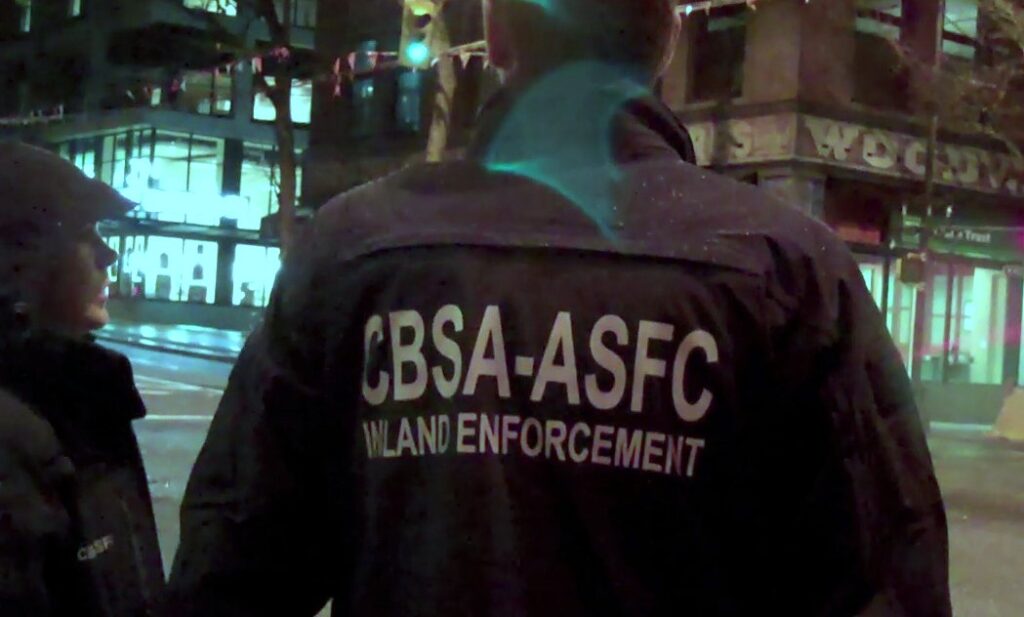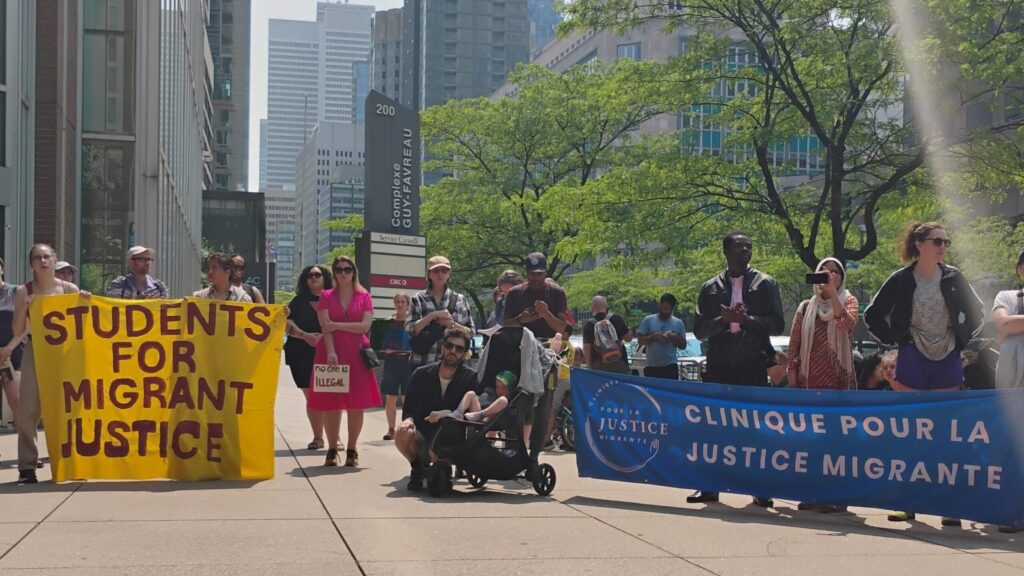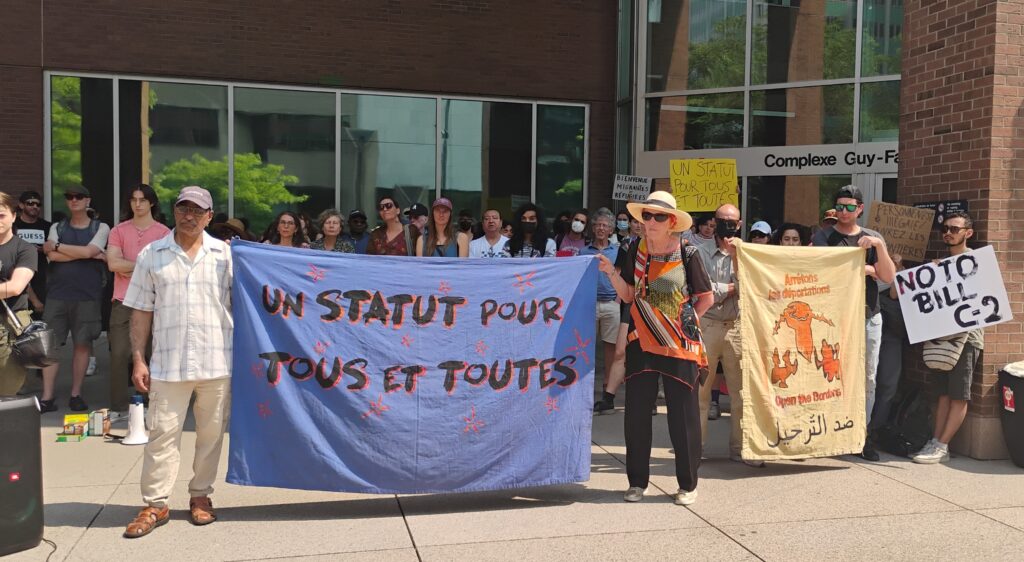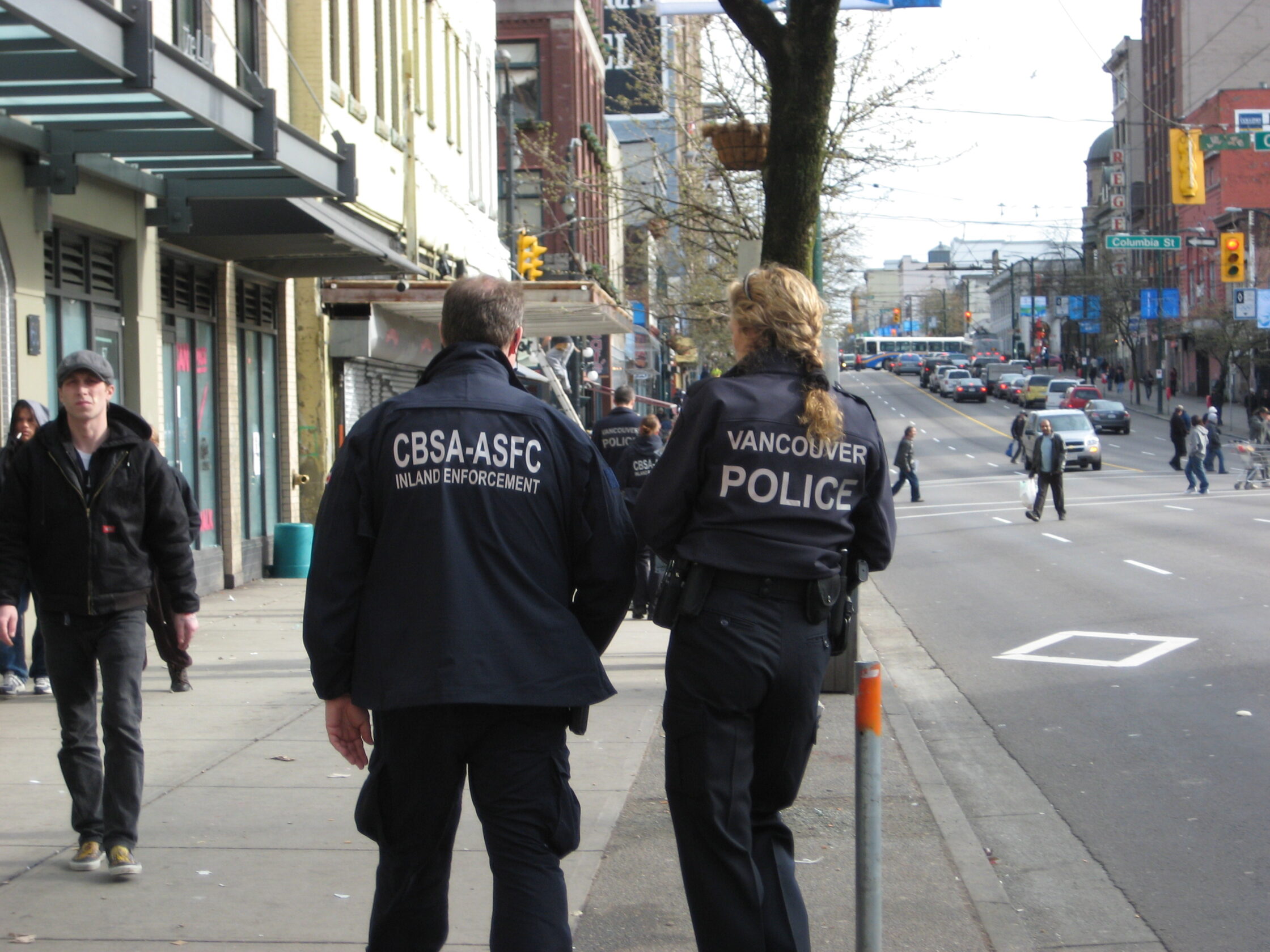On June 3, Carney’s Liberals introduced sweeping legislation aimed at “strengthening the border”. If passed, Bill C-2, also known as the Strong Borders Act, would grant dramatically expanded surveillance powers to the state and severely restrict applications for refugee status.
Immigration and civil rights advocates have harshly criticized the proposed law. The bill has been well-received, on the other hand, by U.S. government officials.
Expanded powers of surveillance
Bill C-2 gives new surveillance powers to police and border security agents. The government is proposing to give $1.3 billion to the RCMP to create an “Aerial Intelligence Task Force” which would perform 24/7 surveillance of the border with helicopters, drones and surveillance towers.
Many of the new surveillance measures, however, would extend far beyond the border. Police would be allowed to force internet service providers and third parties to turn over personal information of their customers without a warrant. Police could also order Canada Post to open mail and packages of people they suspect of sending illegal materials.
It would also become a criminal offence to accept cash payments or donations of more than $10,000. The Liberals have touted this as an anti-money-laundering measure. It also has the effect of pushing more information into the hands of finance capital, a perhaps unsurprising move considering the Prime Minister’s long history working in investment banking.

Immigration measures
Bill C-2 would allow the government to cancel, suspend or alter immigration documents and applications in cases where it deems that doing so would be in the public interest.
“It will give the Immigration Minister the power to simply terminate people’s applications after they’ve actually applied, including whole categories of people,” explains Mary Foster, an organizer with Solidarity Across Borders. “They decide this group is no longer a refugee group. They just cancel everyone’s applications after they’ve already put them in.”
Under the new law, asylum seekers would be barred from making refugee applications after being in Canada for more than one year. This means that someone who arrives in Canada on a work or study permit could be forced to return to their country of origin at the end of their visa even if their life would be in danger.
The North Star spoke to Yasser, a worker whose status will be impacted if the bill passes.
“I came with a closed work permit. The boss, the employer, said that his business wasn’t doing well because of COVID, and he laid off the workers, even though I had a contract with him. I had obtained a visa and everything, the probationary work permit. They just threw me into the street here in Canada, with no way out, and I looked everywhere to regularize my situation,” he explained.
It was then that Yasser became involved with Solidarity Across Borders, a Montreal-based network that advocates for immigrants. He had concerns about freedom of expression in his home country and began preparing to make a refugee application. The one-year moratorium imposed by Bill C-2, retroactive to June 3, would put this out of reach for him and many others.
“Suddenly, this bill appears out of nowhere, saying that I can’t apply for asylum because there’s only a two-month window. They say the deadline is June, and I arrived in August [2024]. It closed all avenues. There is no future for us.”

Asyum seekers at the Canada-U.S. border
The bill also makes it virtualy impossible for aslyum seekers who cross the border irregularly to apply for refugee status. It is notable that this law was drafted as the United States has been ramping up its repression and deportation of immigrants without papers.
“It would make people entering from the U.S. irregularly barred from accessing the refugee protection system at all, unless they fall under an exception to the Safe Third Country Agreement, which is very, very difficult to do, and you have to prove it at the border,” explains Gwen Muir, a lawyer at the Migrant Justice Clinic in Montreal.
Muir says that the acceptance rate for such exceptions is approximately 3%. Meanwhile, more than 82% of refugee claims are accepted in Canada. In other words, the applications barred by this part of Bill C-2 come overwhelmingly from people who otherwise meet the criteria for refugee status.
The new law would expand information sharing between the immigration minstry and other government agencies. Foster believes this will have a chilling effect on reports of labour violations and other abuses by those with precarious immigration status:
“[Undocumented workers are] being horribly exploited by their boss. People here are working literally for $10 an hour. They can be let go at any time. They’re completely precarious and exploited. Now, they can actually go to the Quebec labour tribunal and demand that their rights be upheld. If [Bill C-2] goes into place, that tribunal will be able to share information with Immigration Canada and the CBSA. So, people will be afraid try and uphold their rights.”
Canada-U.S. relations
Public Safety Minister Gary Anandasangaree has said that the new bill was drafted to contain “elements that will strengthen the relationship” between Canada and the United States. “There are a number of items in the bill that have been irritants for the U.S. so we are addressing some of those issues,” he said.
The U.S. has been expanding its regime of border enforcement and mass deportations over the last two decades under both Democrat and Republican leadership. The crackdown has reached a fever pitch this year under Donald Trump, who has poured tens of billions of dollars into what he calls “the very important goal of delivering the single largest Mass Deportation Program in History.”
During Trump’s first mandate, the Liberals took a quite different line on U.S. immigration policy. In 2017, when the U.S. banned travel from several Muslim-majority countries, Justin Trudeau tweeted:
“To those fleeing persecution, terror & war, Canadians will welcome you, regardless of your faith. Diversity is our strength #WelcomeToCanada”
Now, eight years later, the Liberals are signalling enthusiastic cooperation with the U.S. border regime. The new surveillance funding provided in Bill C-2 was announced on January 20, the same day Donald Trump took office and signed an executive order to expand the country’s expedited deportation powers.
While appeasement of the United States appears to play a key role in shaping the bill, the Liberals’ about-face on immigration dates back further than the change in government on both sides. In late 2024, Trudeau’s Liberals announced changes to the Temporary Foreign Worker program that could see tens of thousands of people deported.
Canada on the world stage
It is noteworthy that Canada and Canadian companies play a direct role in creating conditions that cause people to flee their home country. The North Star has previously reported on Canada’s role in human rights abuses in the Philippines, Haiti, Peru, and the Democratic Republic of the Congo.
Bénédicte Carole Zé, a worker from Cameroon, elaborated on this issue in a speech at a Solidarity Across Borders rally in Montreal last week:
“Africa is the richest continent in the world, but Africans are the poorest people in the world. Why is that? Because of colonization by Western countries,” she said. “That’s what drives us to immigrate to foreign countries.”
Canada has long mitigated its reputation as a progressive country by touting its immigration program abroad.
“Canada has always projected itself as this human rights-upholding entity that’s a land of peace and freedom and equality, and then when migrants get here, they see very, very different realities, and people live in great precarity,” explains Foster. “Well, at least they’re not being so hypocritical anymore.”

Without recourse to the refugee system, people fleeing the poverty and consequent instability fomented by Western powers like Canada are increasingly forced into closed work permits and the controversial Temporary Foreign Worker program. The latter has been characterized by the United Nations and Amnesty International as a form of modern slavery.
Zé called on Canada to provide a path to citizenship for the migrant workers its economy increasingly relies on: “We want dignity for all those who find themselves without status in Canada today, who came here fleeing war, who came here with closed work permits, permits that are a form of slavery designed to keep us inferior to others.”


Be part of the conversation!
Only subscribers can comment. Subscribe to The North Star to join the conversation under our articles with our journalists and fellow community members. If you’re already subscribed, log in.